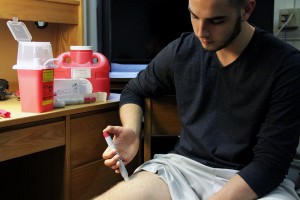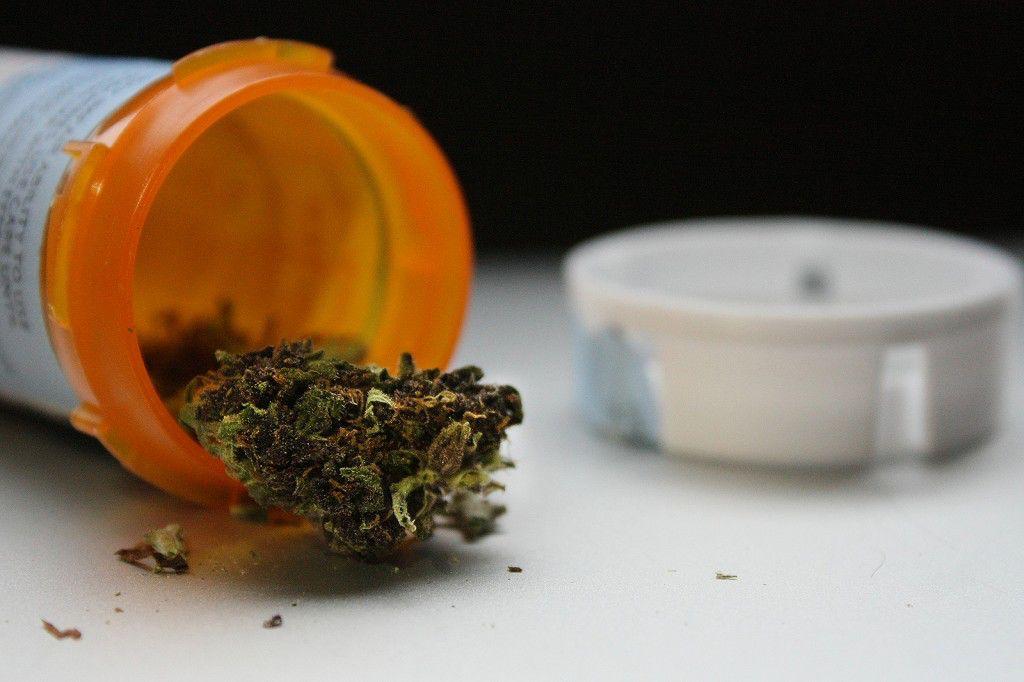
Students and residents are criticizing Massachusetts legislators for failing to open medical marijuana dispensaries in the Commonwealth in a timely manner, which they claim is crucial to combatting symptoms the drug may be able to treat.
Though Massachusetts decriminalized marijuana in 2009, approved medical use of the drug in 2012 and approved 20 applicants’ provisional dispensary licenses in January, the Commonwealth has not given dispensaries a date of when they can start operations.
Matthew Allen, executive director of the Massachusetts Patient Advocacy Alliance, said he is disappointed with the lack of progress Massachusetts has made since the 2012 law was passed.
“There are supporters of our group who are patients that have conditions like Multiple Sclerosis, ALS [Lou Gehrig’s Disease] or debilitating pain, who have no safe access to their medicine,” he said. “Many continue to go without or seek their medicine on the black market. What we’ve been hearing from the Department of Public Health for two years now is, ‘Be patient. You have to wait.’”
The Commonwealth needs time to evaluate dispensary applicants before they can begin operating, said Department of Public Health’s Medical Use of Marijuana Program spokesman Scott Zoback.
“What we’re really looking for is that applicants have a thorough understanding of the issues involved in operating a dispensary, that they have a comprehensive and reasonable plan and that they’re ready to serve in a manner that ensures both patient access and public safety,” he said. “Those two pieces are what this entire program is built on and operates on.”
Zoback said some dispensaries could open in Massachusetts as early as winter 2014-15.
Patients eligible to receive medical marijuana treatment, Allen said, are growing impatient with Massachusetts policy and are suffering without access to marijuana.
“From the administration, it’s just politics before patients,” Allen said. “I think [Massachusetts Gov.] Deval Patrick is trying to skip out of office without trying to address this issue. What he’s created with that approach is a serious public health crisis. It’s not only an issue about public health and quality of life for patients, but also an issue of effective government.”
A Boston University graduate student, who asked to remain anonymous, said she has been approved to receive a medical marijuana card, and hopes to use the drug to treat Post-Traumatic Stress Disorder and insomnia. The student said the option is a safer, more effective and less expensive solution to her symptoms than traditional medication.
“Even if I get my card, there is no feasible way for me to then have access to medicinal marijuana,” she said. “I would have to pay and go through the process and get my certification, which then has to be renewed every year, to get my medical card, but at the same time, there are no dispensaries in the area that make it accessible.”
George Annas, chair of the department of health law, bioethics and human rights of BU’s School of Public Health, said it is reasonable for the Commonwealth to take more time during the evaluation process to avoid potential trouble.
“Two years implementation is not a long time in implementing a law,” he said. “[For] people who use medical marijuana, I can see how they are frustrated and irritated…[but] it’s a brand new job from Massachusetts, and it’s not surprising that it’s taking a while.”
BU operates under federal and state laws that prohibit the use and possession of illegal drugs and alcohol, according to the university’s Alcohol & Drug Polices & Disclosures policy.
The university does not distinguish between medical or recreational marijuana in any form and regards the drug as illegal, said Dean of Students Kenneth Elmore.
“There are no exceptions because marijuana on a federal level has not been decriminalized,” he said. “We have to comply with federal standards, regulation and guidance we receive. As an institution that directly or indirectly receives federal funding, like financial aid and grants, it’s important for us to maintain these relationships.”
School of Management freshman Graham Brunell suffers from Crohn’s disease, an illness with symptoms his doctors said medical marijuana could treat when used properly. Each week, Brunell injects medicine it into his body, takes vitamin supplements and follows a strict diet to keep the lining of his stomach from deteriorating.
“BU needs to take the appropriate steps to realize that, for some people, this is a legitimate medicine,” he said.
Brunell injects himself with Humana, a treatment for Crohn’s disease, that he said has proven fatal for some users.
“This is a serious drug,” he said. “It’s interesting because the school would allow me to do that in my room, but they wouldn’t allow me to step outside my room and smoke outside of the dorm. I don’t think that’s right.”




















































































































Mike Parent • Oct 2, 2014 at 1:23 pm
It’s the same in NH.
A year after MMJ became legal NH hasn’t progressed one iota towards implementing a viable MMJ policy. They’re still beholding to the police chiefs and their propaganda.
D Patrick • Oct 2, 2014 at 12:50 pm
Martha Coakley wants you Potheads in Jail. She is a cop in Marshall’s clothing. She is the one slowing things down…and speeding up settlement of illegals. Back of the line native Mass residents. pay your taxes and shut up.
claygooding • Oct 2, 2014 at 10:49 am
As seen in nearly every state,,getting a law passed is only half the battle,,we must still remove the prohibition supporters from ALL political offices.